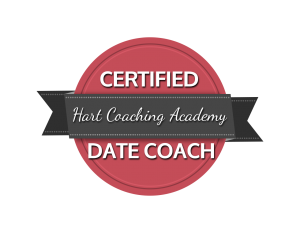In the spring of 2014, Gwenyth Paltrow published a blog post to her website, Goop, that started the divorce discussion of a decade. As media picked up her announcement, and the unusual term, millions of people thought, “What is conscious uncoupling?” And, moreover, how is it different than a regular old divorce? To answer these questions, we have to look back at the creator of the now famous two words, Katherine Woodward Thomas.
Katherine created the concept of getting “un-married” when her very own marriage of ten years began to unfold. Her then husband, who she’s now amicably dubbed her “wasband,” was not only her partner in life for ten years but also the star subject of her relationship book. The subject matter of which was all about attracting true love and building a solid relationship.
Not only was she floored by her marriage heading to divorce (this would be her second divorce), but she couldn’t imagine going through the judgment of friends and family, people taking sides, one partner attacking the other or the overall shameful feelings that come with the idea of failure. She decided that this would not be a “traditional divorce” in the sense that society has grown accustomed to. It would be something more meaningful, loving and serene.
If you think of how most relationships end, it’s generally because one or both partners are at fault. They’re blamed with having done something – or not done something. Our instinct, as humans, is to identify the problem. When in a relationship nearing its end, partners tend to try to find the problem in the other. Katherine’s concept, on the other hand, encourages partners to acknowledge the larger issues and focus on moving forward. If it’s been decided that a relationship’s over, there’s no point in overanalyzing every action or word ever said in order to assign blame. What’s important is moving forward in the least damaging way, to both parties, possible.
Fundamentally, consciously uncoupling comes down to authentically appreciating the good in the relationship and working to ensure both partners are happy, ready and able to move forward in life and love. Where extended families or children are involved, it’s about continuing to foster a sense of family – even if there is no longer a relationship status or binding tie in the eyes of the law.
For most, the idea of witnessing – and actively taking part – in the undoing of a union is tragic. Even Katherine herself admits to being devastated and has been quick to acknowledge that she wouldn’t have considered her husband a “friend” during the divorce proceedings. Instead, she refers to their relationship as having had a “friendly atmosphere.”
If you’ve been through a divorce, are currently divorcing or are recently separated, it’s not too late to consciously uncouple. It can be done with both partners actively participating, or just one partner. At the end of the day, it’s all about how you feel about and approach the situation. Only you can control your feelings and actions, and you do have the power to begin again without anger, resentment and pain.
As it turns out, while Gwenyth was following the principles set forth by Woodward Thomas, it was Goop’s editor who titled the blog post “Conscious Uncoupling.” So while, in reality, Gwenyth was unfamiliar with Katherine’s work at the time that she wrote her blog post, her celebrity power has shed an incredibly bright light on the fundamental problems with divorce and, now, an increasingly more widely adapted alternative.
If you’re wondering how it could ever be possible to face divorce, and particularly the more difficult aspects, with such a positive mindset, you might find this quote enlightening:
“So much that was beautiful and so much that was hard to bear. Yet whenever I showed myself ready to bear it, the hard was directly transformed into the beautiful.” - Katherine Woodward Thomas, Consciously Uncoupling: 5 Steps to Living Happily Even After
To your authenticity,
Love, Christine


